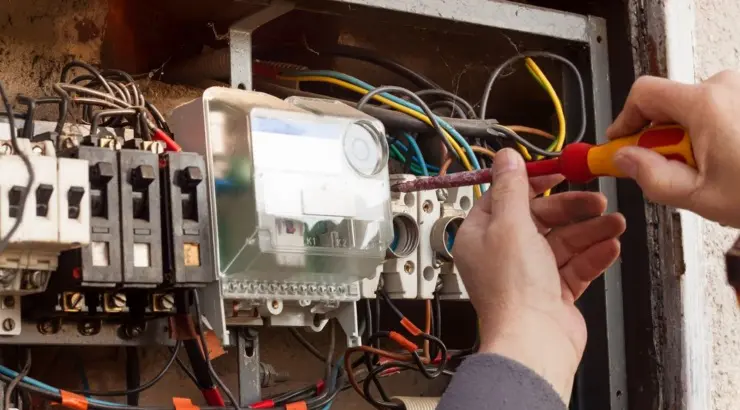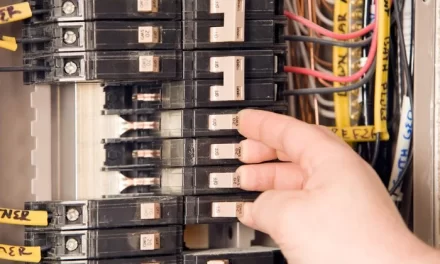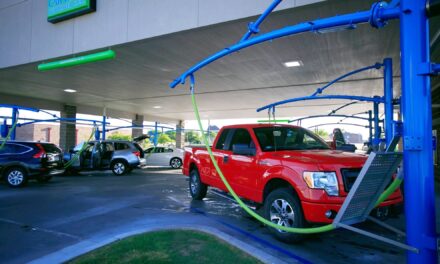Your child’s safety should always be of paramount importance, even more, when it comes to home electrical installations. A report by the National Fire Protection Association highlighted that household electrical failures resulted in approximately 44200 home fires, with a disconcerting annual average of 440 civilian deaths between 2010 and 2014.
Understanding the Basics
Having a clear grasp of basic electricity is pivotal to securing your child’s safety. Sufficient knowledge of currents, voltages, electrical circuits, and grounding mechanisms allows you to create a safe environment for your children against potential electrocutions and electrical fire hazards.
Securing Electrical Outlets
Protective coverings or tamper-resistant receptacles (TRRs) are an excellent way to secure outlets. TRRs have spring-loaded shutters that close the contact openings when not in use. This functionality eliminates the possibility of your child accidentally sticking a finger or metal object into it.
Avoiding Overloaded Circuits
Overloading circuits by plugging too many appliances or devices into the same outlet can pose severe threats. It is important to understand the power requirements of devices and capacity of circuits in your house to curb this menace effectively.
Enacting Safe Use of Electrical Appliances
Educate your children about the dangers associated with careless handling of electrical appliances. This includes keeping appliances away from water, unplugging them after use, and avoiding touching them with wet hands.
Maintaining Electrical Wires
Regular maintenance of electrical wires is crucial. Frayed or torn wires can cause serious accidents if unnoticed. It is advisable to periodically evaluate the condition of wires in your house and replace them if necessary.
Improperly Placed Electrical Wires
Avoid routing electrical wires under carpets or through doorways. This can damage the wire insulation, leading to short circuits and potential fires. Safe wire management increases the longevity of your electrical wires and ensures your child’s safety.
Educating Your Children
It is paramount that you educate your children about electricity and its potential dangers. Even simple information like refraining from putting metal objects in outlets and maintaining a safe distance from outdoor power lines can be tremendously beneficial.
Installing Ground Fault Circuit Interrupters (GFCIs)
GFCIs are a must in areas of your home where water and electricity can meet, such as kitchens, bathrooms, and laundry rooms. They function by detecting any imbalance between incoming and outgoing current and promptly cut off electricity supply to prevent shock.
Using Correct Wattage in Light Fixtures
Always use bulbs and fixtures that match in wattage requirements. Over-wattage can overheat the fixture leading to possible fires. Understanding the requirements of each fitting can prevent potential health hazards effectively.
Implementing Safety measures During Power Outages
During power outages, the risk of accidents increases due to the lack of lighting. It is advisable to have battery-backed emergency lighting installed for such situations. These lights automatically turn on during power failures, providing sufficient visibility to cater to any arising issue safely.
Hiring Professional Electricians For Installations And Fixes
While DIY culture is popular today, when it comes to electrical installations and fixes, it is best to leave it to professionals. Engaging electricians can ease your worries about electrical safety, ensuring installation and repair work are completed to stringent safety standards.
Regular Inspection Of Electrical Installations
Routine inspection and maintenance of your home’s electrical installations reduce the chances of electrical failures. Appoint a certified electrician to conduct periodic checks to ensure all systems function appropriately and are in safe working order.
Qualities Of A Safe Home
A safe home is not just one that is well furnished or beautifully decorated but one where the necessary emphasis is placed on safety requirements too, such as solid electrical safety practices. Your home’s beauty is only enhanced when you take the necessary steps towards implementing best practices around electrical installations.
Safety Above All
Safeguarding your family and home from potential electrical hazards should always be a priority. Remember, while reaping the benefits of electricity, it’s equally important to understand and implement safety measures. Implement these practices to create a more secure environment at your residence that promotes not just a high standard of living but also the wellbeing of each family member.






